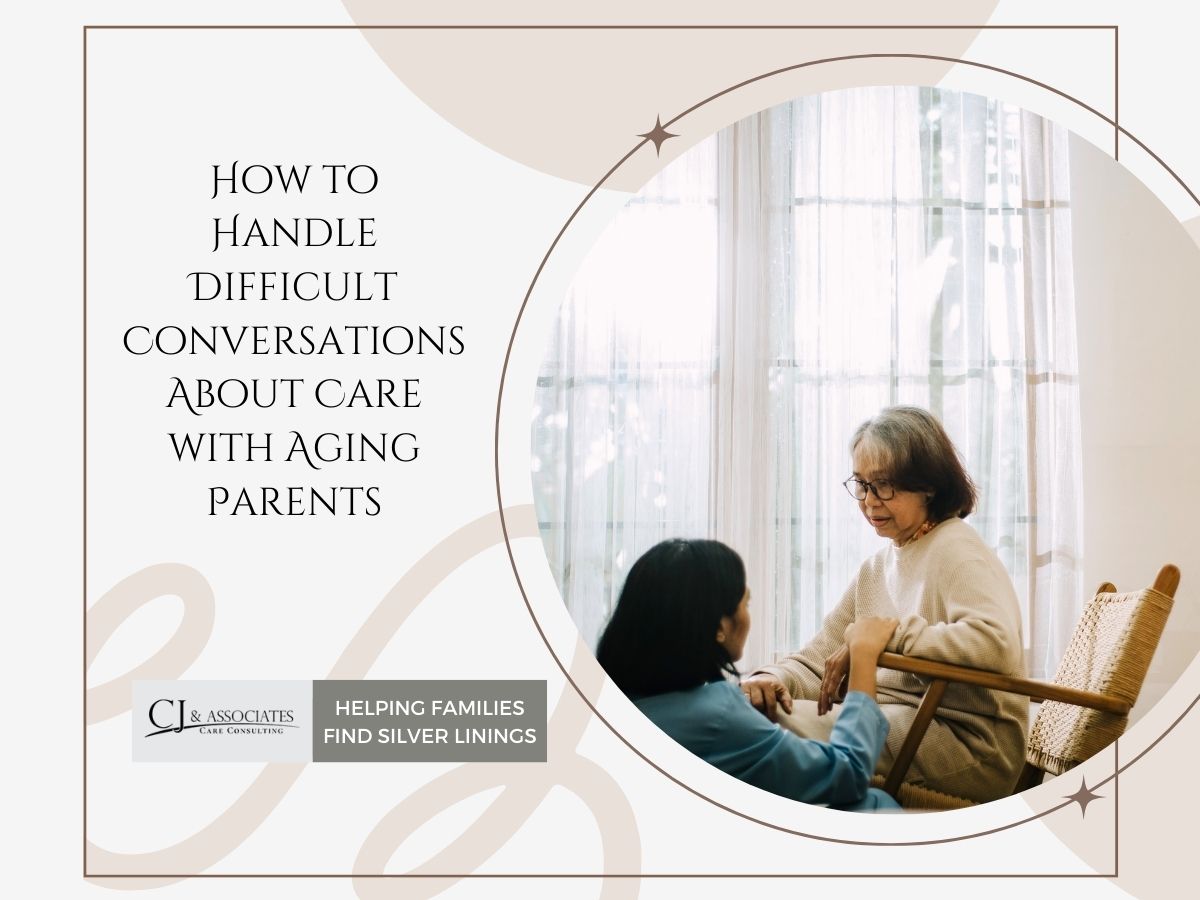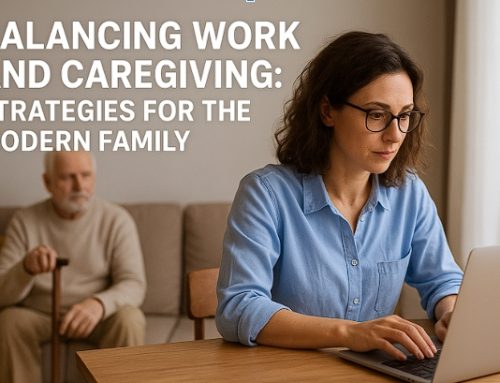Talking to aging parents about care, health, and living arrangements can be challenging. While necessary, these conversations often bring up difficult emotions such as fear, frustration, and even denial. Here’s a guide on how to approach these sensitive topics with empathy, patience, and tact. It’s important to create an open and supportive environment where your parents feel comfortable expressing their thoughts and feelings. Acknowledging their concerns can strengthen elder care family relationships and foster a sense of collaboration in decision-making. Remember, the goal is to ensure their well-being while maintaining their dignity and independence. One of the most delicate subjects to navigate is discussing downsizing with aging parents. It’s important to frame the conversation in a way that highlights the benefits, such as increased safety and reduced maintenance, rather than focusing solely on the loss of their long-term home. Approach the topic gently and listen actively to their concerns, making it clear that their needs and feelings are your top priority.
Start the Conversation Early
Waiting until a crisis hits makes these discussions more difficult. It’s best to have an open dialogue with your parents before care decisions are urgently needed. Approach the subject early to give your parents more time to adjust and be involved in the decision-making process.
Tip:
Ask general questions to get a sense of their feelings, such as:
“What are your thoughts about living at home as you get older?”
Or: “Have you thought about what kind of help you might need in the future?”
Choose the Right Setting
The environment where you have these discussions can make a big difference. Choose a relaxed, neutral place to talk where everyone feels comfortable. Avoid discussing these topics during stressful or busy times, like holidays or family gatherings, as this could heighten emotions.
Tip:
Set aside a specific time to talk, making sure everyone is in a good frame of mind. A calm Sunday afternoon might be a better time than a rushed weekday morning.
Show Empathy and Listen
It’s important to recognize that this conversation may be difficult for your parents, and they may resist it at first. They might feel like they are losing their independence. Approach the conversation with empathy and understanding. Actively listen to their concerns and respect their opinions.
Tip:
Start the conversation with a statement of care, such as:
“I know this may not be easy to talk about, but I want to make sure we have a plan in place that makes you comfortable.”
Be Honest but Gentle
While it’s important to be honest about your concerns—such as noticing your parent’s difficulty moving around the house—it’s equally important to be gentle in your approach. Avoid sounding critical or accusatory. Frame your concerns in a way that shows your love and desire to help.
Tip:
Instead of saying, “You can’t take care of yourself anymore,” try something like,
“I’ve noticed you’ve been having trouble getting around. How can we make sure you stay safe at home?”
Set Boundaries
You may face resistance from your parents, especially if they feel their independence is being threatened. It’s important to respect their autonomy but also to set clear boundaries about what you are and aren’t able to manage. Don’t hesitate to bring up the importance of professional help when needed.
Tip:
If your parents refuse help, explain that while you respect their decisions, you want to work together on finding solutions that make everyone feel more secure.
Bring in a Professional
If the conversation becomes too emotional or if disagreements arise, it may be helpful to bring in a neutral third party, such as a geriatric care manager or a family therapist. They can mediate the conversation and provide expert advice on what the best options are for your parents’ care.
Tip:
Suggest bringing in a professional by saying: “Let’s talk to someone who can help us explore all the available options and find what works best for everyone.”
Handling difficult conversations about care with aging parents is not easy, but with patience, empathy, and the right approach, it’s possible to navigate these discussions in a way that prioritizes their dignity and well-being. These conversations might feel uncomfortable at first, but starting early and communicating openly can make all the difference for your loved one’s future care.






